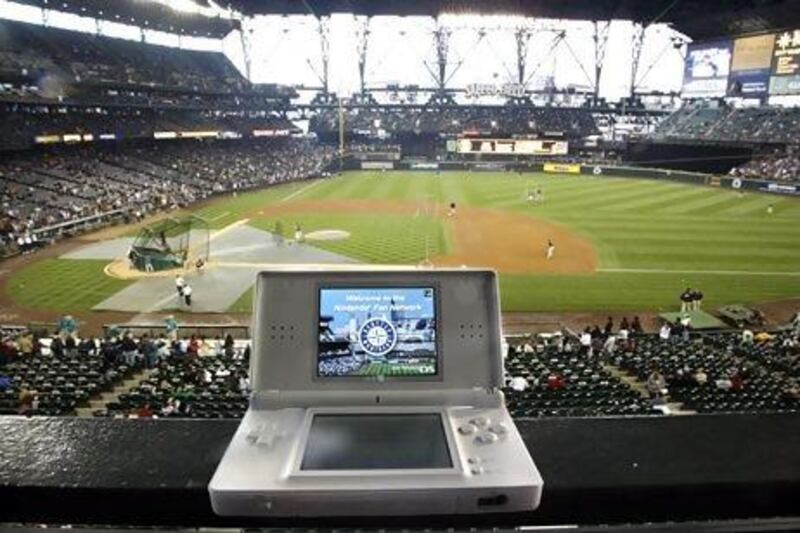In business, the most succinct of American adages applies. Money talks.
Meaning, if you want to buy anything and possess the capital to meet the price tag, it can be yours.
As with all rules of thumb, there have been exceptions.
In 1992, Major League Baseball commissioner Fay Vincent initially opposed an effort by a Japanese mogul to purchase the Seattle Mariners.
In no way did Hiroshi Yamauchi's bid get the thumbs-down for lack of sufficient financial heft.
He was the originator and chief executive of Nintendo, whose products can be found in most any household with a video-game console.
Vincent fell back on a temporary policy adopted by team owners that prohibited the majority share of a franchise from being acquired by other than a United States or Canadian citizen.
Their stated reason at the time was to promote local ownership, but an unmistakable undercurrent was a concern that America's pastime might somehow be poisoned by interests from different cultures.
The commissioner reversed course when no other viable buyer emerged and worries surfaced within MLB that it might be perceived as prejudiced against the Japanese.
Soon, Yamauchi had himself some bats and balls, along with millionaire players to use them.
The sale unleashed no international flavouring of sports hierarchy among the nation's four primary leagues, even as Japanese investors in the same year oddly bought a sizeable share of the NHL's Tampa Bay Lightning. (Joked general manager Phil Esposito, who brokered the deal: "I said 'hockey'. They thought I said 'sake'.")
Three decades later, money talked so loudly, even if in an unfamiliar language, that it could not be ignored.
Mikhail Prokhorov, a Russian regarded as one of the planet's wealthiest men, took 80 per cent ownership of the NBA's Nets, moving them from New Jersey to the New York City borough of Brooklyn.
Expect more to come.
As Americans with mountains of cash to spare scoop up sports properties overseas - see Manchester United and Roma - there is little deterrent to some two-way traffic.
The westward flow picked up a bit the other day when Manchester City club became the primary owner of a Major League Soccer (MLS) expansion franchise in New York. This, just after Vivek Ranadive, who emigrated as a teen from India to California, procured the NBA's Sacramento Kings.
MLS might be second-tier on the American sports landscape, but the transaction adds heat to an economic climate that could persuade foreigners of substantial means to seek opportunities to park their money.
Forbes magazine is the authority on estimating net worth of sports entities. Its latest figures paint a potentially bullish picture with the three leagues in the midst of their seasons.
The average MLB team is assessed at US$744 million (Dh2.7 billion), a 23 per cent increase that marked the highest year-to-year bump this century;
The average NBA franchise shot up 30 per cent to $509m
The average NHL holding bounced 18 per cent to $282m.
There is nothing flukey about the trend. In each league, owners and players, often at odds over labour issues, have found peace.
In the television industry, where so-called studio shows have lost considerable value as American viewing habits change, the appeal of it's-happening-now sports has sent rights fees paid by broadcasters skyward.
Corporate sponsors are eager to attach themselves to the industry.
While the appraisals of sports teams that use a round ball or puck have risen, the upper echelons of sports ownership remains the NFL.
By Forbes' reckoning, 20 of the 32 NFL franchises are worth at least $1bn after most of them doubled over the last decade. One expert foresees the average jumping to $2bn in the next 10 years.
Certain conditions could thin the line of prospective customers. All leagues conduct background checks to confirm a bidder's financial wherewithal and weed out those with a questionable history, particularly regarding any wayward business dealings or personal peccadillos that might draw unwanted attention.
Unlike the other leagues, which allow companies to acquire teams, the NFL limits its exclusive circle to individuals. Liberty Media, which writes cheques to the Atlanta Braves, could not do the same with the Atlanta Falcons.
None of which would prevent John Malone - Liberty's chairman who, Forbes figures, is richer than all but 197 people - from ponying up for a football team.
Still, the effects of globalisation on ownership in United States sports cannot be turned back, even if Americans wanted to.
The consensus is, they are just as comfortable buying baseball tickets from Yamauchi as they are Wii systems and Super Mario games from his firm.
[ sports@thenational.ae ]





